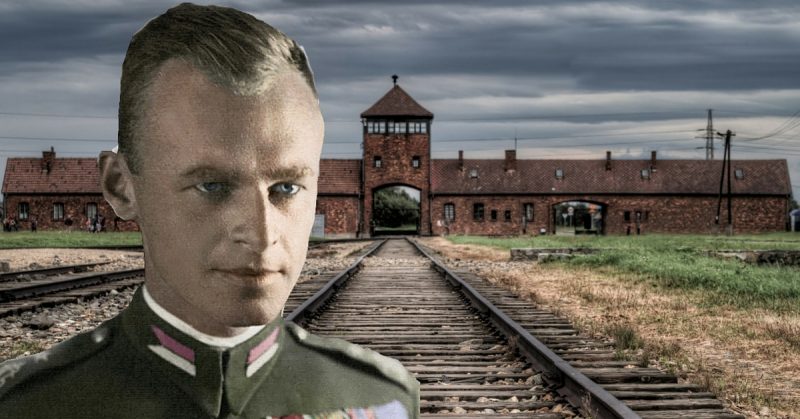In September 1940, Witold Pilecki voluntarily surrendered to the Germans during a street raid in Warsaw. He did this in order to penetrate one of the worst places in Europe–the Auschwitz death camp.
At Auschwitz, Pilecki assisted prisoners, wrote about the atrocities of the SS, and had a desire to release all prisoners. However, after the end of the war, the communist government condemned the Polish hero and sentenced him to death.
Witold Pilecki was born on May 13, 1901 in the city of Olonets, the Russian Empire. His family belonged to the aristocracy and had participated in the Polish uprising of 1863-4. Witold inherited the desire to fight for Poland’s independence, so he became a member of an underground organization called the Harcerstwo, which was modeled on British scouting.
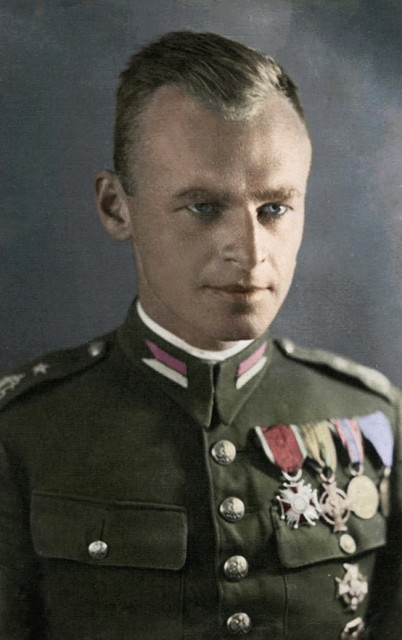
Pilecki joined the Polish Army in 1920, during the Polish-Soviet War (1919-21). As part of the 211 Uhlan regiment, Pilecki took part in the Battle of Warsaw, the battle in Rudniki Forest, and in the liberation of Wilno.
For military merits, Pilecki was twice awarded the Cross of Valor. After the war, he took up the restoration of the family estate, got married, and became a father. However, the quiet life was short.
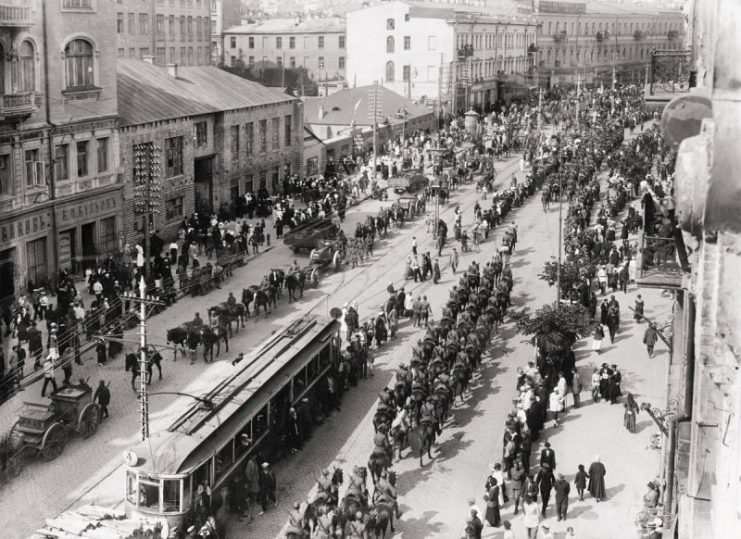
On September 1, 1939, troops from Nazi Germany invaded Poland from the west, and on September 17, the Soviet Union invaded the country from the east. Pilecki was drafted into the Polish army and until October 17, 1939, he fought against the German forces as a platoon commander in the 19th Infantry Division.
Shortly thereafter, he made his way to Warsaw to take part in the creation of the underground Resistance organization called the Secret Polish Army (Tajna Armia Polska, or TAP). It was established on November 9, 1939.
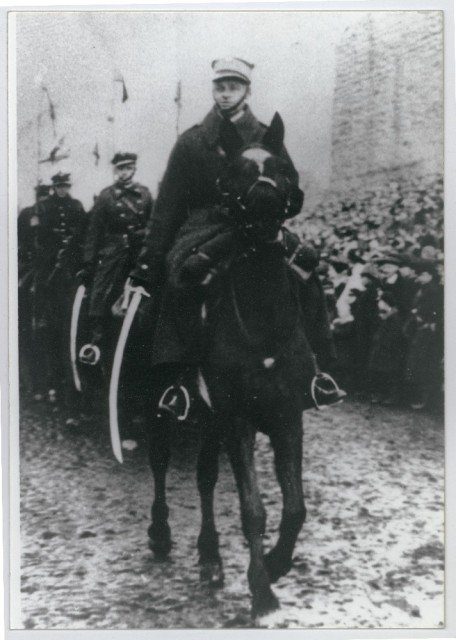
In 1940, Pilecki developed a plan for penetrating the Auschwitz concentration camp. Until that time, Auschwitz was considered a large prison, and although it was known for harsh conditions, it was not widely known that a death camp had been established there.
Pilecki planned to study the situation at Auschwitz and see if it was possible to start an uprising and free the prisoners. The command approved the plan and gave him bogus documents.
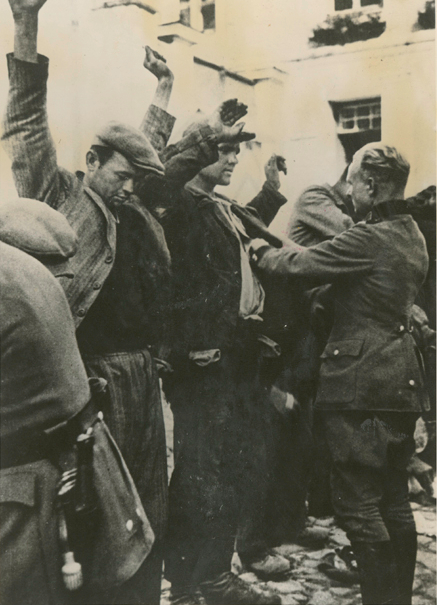
German soldiers regularly organized raids and searches on the streets of Polish cities to find Jews and Poles involved in the Resistance. On September 19, 1940, Pilecki voluntarily surrendered as “Tomasz Serafiński” to the Germans during one of these raids. Two days later, he and about 2,000 other people were taken to Auschwitz.
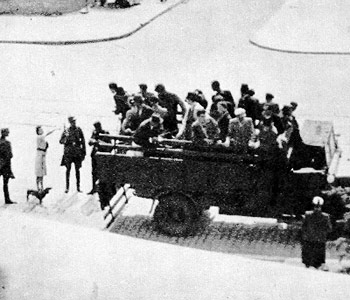
In the camp, Pilecki was assigned serial number 4859. He became the organizer of an underground network called Union of Military Organizations (ZOW).
He wrote reports about the structure of the camp and the condition of the prisoners, and Resistance agents were able to get these reports to the Polish government-in-exile in London. Thanks to Pilecki’s work, the world learned that a system of extermination of Jews had been created at Auschwitz.
Members of the ZOW network inside the camp assisted the prisoners. They shared food, prepared a rebellion, and told them the news that they received from the outside world through a homemade radio transmitter.
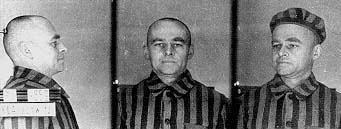
However, the prisoners were unable to cope with SS security teams. For this reason, the success of the uprising was possible only with outside support.
Pilecki put forward a proposal to hold an armed uprising and release the prisoners with the help of the Polish Home Army. This mission was unpromising, however, since even if the escape was successful, so many thousands of prisoners would not have been able to evade recapture and prosecution.
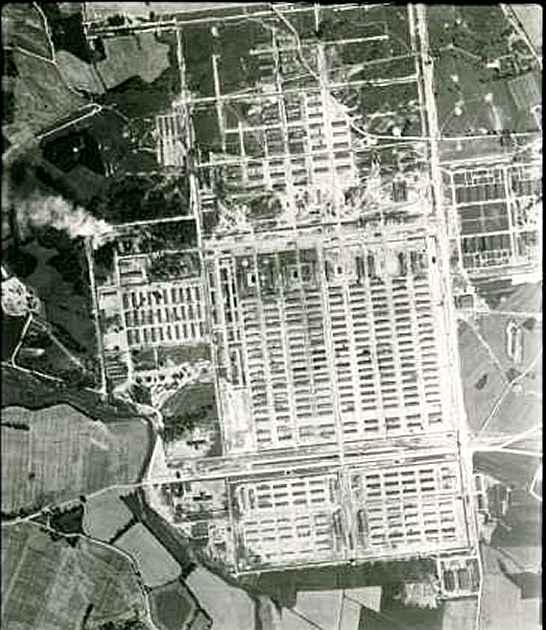
In April 1943, Pilecki was able to escape. When he went to work outside the camp, he and two other Poles neutralized the guards, took away their weapons, cut the phone line, and got away in the night.
A few days later, they managed to rejoin the Home Army. Together with them, Pilecki took part in the Warsaw Uprising in 1944, after which he was captured by Germans.
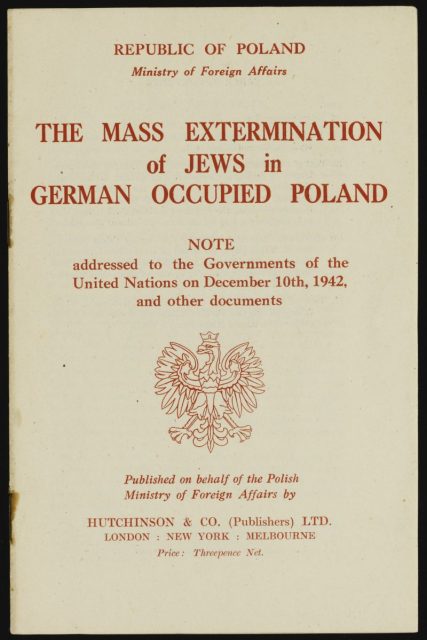
After his escape from Auschwitz, Pilecki had prepared a report on the state of affairs there, called “Witold’s Report.”
In 1945, he wrote a more detailed version of his report, which was not released to the public until 2000. In this report, he described every crime that he witnessed. He testified that the Soviet prisoners of war were exterminated as quickly as the Poles and Jews.
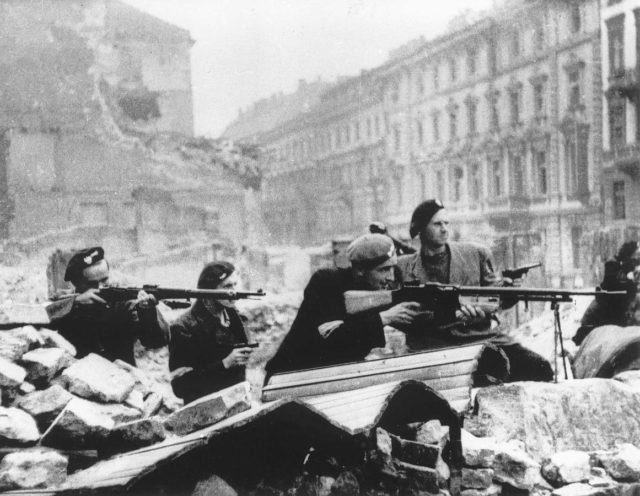
After WWII ended, Pilecki remained among those Poles who wanted to regain Poland’s independence. He joined the Polish II Corps, which had been created in 1943 and was led by General Władysław Anders.
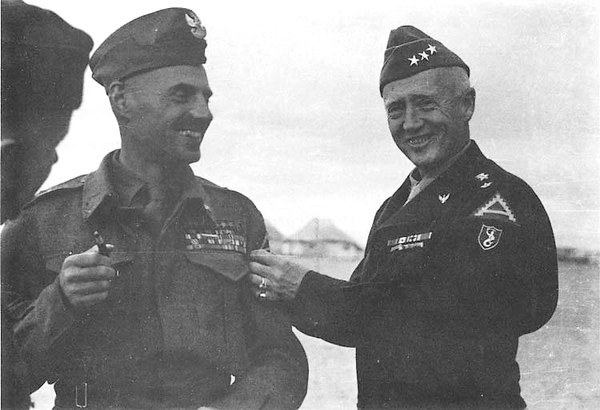
In the autumn of 1945, Pilecki began conducting intelligence activities for Anders in Poland. He organized a network of agents and began to collect information on the activities of the new pro-Soviet authorities, as well as on Home Army soldiers who were prisoners in the NKVD camps in the country.
Despite the threat of exposure and the order of General Anders, Pilecki did not leave Poland. In May 1947 he was captured. After brutal torture carried out in the Polish Ministry of Public Security, comparable to the NKVD, Pilecki was accused of espionage, illegal possession of weapons, illegal border crossings, using forged documents, and plotting the assassination of officials in the Ministry of Public Security.
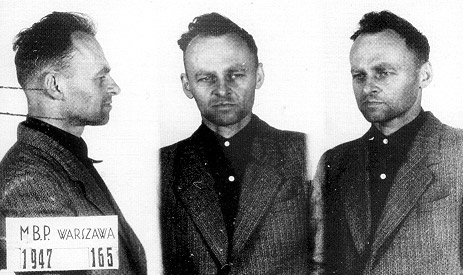
Pilecki refused to admit guilt in the assassination charge, but did not conceal that he was carrying out intelligence activities for the 2nd Corps. The investigation and the trial were carried out with numerous violations.
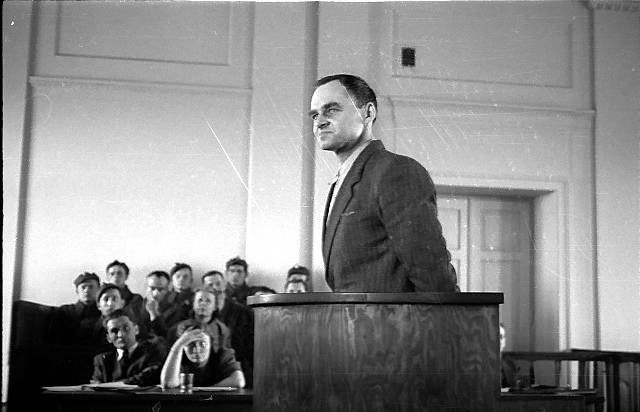
On May 15, 1948 Witold Pilecki was sentenced to death. After the announcement of the death sentence, Pilecki’s response was “I’ve been trying to live my life so that in the hour of my death I would rather feel joy, than fear.”
On May 25, the sentence was carried out in the Mokotow Prison in Warsaw. Pilecki was executed with a shot to the back of his head.
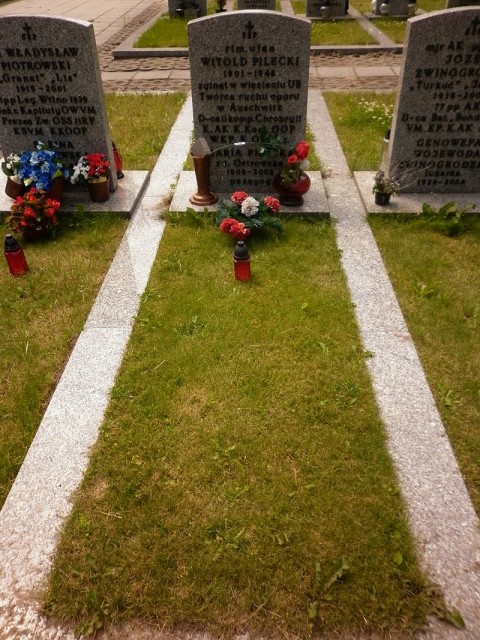
Pilecki left behind a wife, son, and daughter. The name of the hero who revealed to the world the truth of what was happening in the Auschwitz death camp was banned in Poland until the collapse of the Polish People’s Republic.
On October 1, 1990, after reviewing the trial, the Chief Military Prosecutor Office announced that the Witold Pilecki verdict was invalid. On July 30, 2006, Polish President Lech Kaczynski awarded Pilecki with the country’s highest award for merit, The Order of the White Eagle.
